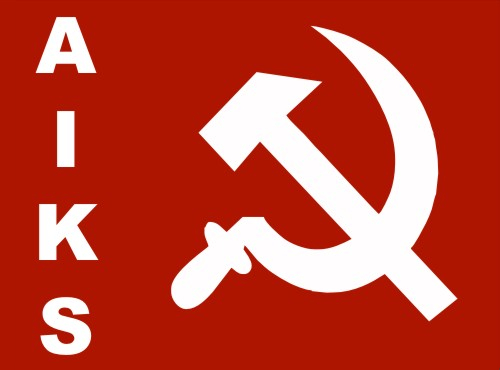Reject Peace Clause on G-33 Proposal in WTO Bali Ministerial Protect Farmers’ Livelihoods and People’s Right to Access Food
21st November, 2013
In the context of the World Trade Organisation’s (WTO) 9th Ministerial Conference slated to be held in Bali in December 2013 the All India Kisan Sabha calls upon the UPA Government to intervene to protect the livelihoods of millions of our farmers and remain committed to our sovereign right to decide upon our price support policy as well as food security programme. The WTO induced policies of trade liberalisation has led to adverse implications for the Indian peasantry especially the poor and marginal farmers. AIKS has strongly opposed the WTO and especially the Agreement on Agriculture (AoA) which calls for cutting down agricultural subsidies in the developing countries on the pretext that they were “trade distorting”. AIKS calls for rejecting the Interim Solution suggested by the WTO Director General Roberto Azvedo to the G-33 Proposal. The proposed Interim Solution is detrimental to the interests of the developing countries and millions of farmers.
The WTO Director General put forward a Peace Clause or Due Restraint Clause as a fait accompli to the G-33 countries with an arrogant “take it or leave it” stance. This will have adverse implications for the Procurement Policy and the Food Security Programme of the country. The WTO agenda remains to prise open the markets of the Third World Countries to the agribusinesses and to provide them an unregulated access.
The so-called Peace Clause restricts India and other developing countries’ right to provide subsidies or support to crops. It suggests that only “traditional staple food crops” may be extended subsidies for a stipulated period of 4 years extending till the 11th Ministerial Conference of WTO with an understanding that no member shall challenge it through WTO’s Dispute Settlement Mechanism till then. Already the AoA only allows de minimis subsidy of 10 percent of production cost for most developing countries. This itself defies logic and is calculated based on a fixed reference price of 1986-88 when prices were much lower. It thereby shows inflated subsidies while remaining totally oblivious to the present day global agricultural prices. It also calculates subsidy on the basis of total production receiving subsidy rather than the actual procurement.
In addition the developed capitalist countries which are seeking to impose such restrictions have flexibility to retain high levels of subsidies in the form of direct transfers, food stamps and other measures. The USA and the European Union are going ahead with their domestic subsidies as well as export subsidies by conveniently shifting subsidies to the Green Box and has refused to comply with the stipulated 20 percent reduction in their Aggregate Measurement of Support. The USA has more than doubled its subsidy from US $ 61 Billion to US $ 130 Billion between 1995 and 2010 while the EU subsidies hover around € 90 to 79 Billion between 2006-09. In 2012 USA spent US $ 100 Billion for its food aid programmes while India’s food subsidy bill is expected to be less than US $20 Billion only.
Subsidies that seek to bring in a semblance of livelihood security and food security in impoverished countries cannot be treated as “trade distorting”. Acquisition of food stocks to ensure food security needs and support for resource-poor, small and marginal farmers to provide minimum livelihood security cannot be given up. Procurement on grounds of food security or support for poor and marginal farmers must be exempt from all restrictions. AIKS reiterates that this falls strictly within the realm of our sovereign State policy and the Government should speed up efforts to extricate India and other Third World countries from such unequal and unfair restrictions. The huge disparities in permissible agricultural support levels between developed and developing countries needs to be eliminated. In the interim period the reference price needs to be updated by accounting for inflation and increased costs and levels of price support should be computed on the basis of actual quantity procured rather than the actual quantity produced. India should effectively intervene to safeguard these rights. AIKS demands that the developed countries’ domestic and export subsidies in the Green Box should be challenged and eliminated. India should take the lead to unite all the developing and Third World countries to restructure and overturn the unequal WTO regime.
Sd/-
Amra Ram, President
Hannan Mollah, General Secretary

